Rohingya-refugees-in-their-places-of-refuge..jpg" />
Rohingya gather in their places of refuge.
Ankara, 26 Ramadan 1438/21 June 2017 (MINA) -Nearly a half-million Rohingya from Myanmar have been displaced due to decades of oppression in southwestern Myanmar, Anadolu Agency reported, citing a new UN report.
Also Read: UN Experts Warn Right Violations in Kashmir by Indian Authorities
The report, published by the UN High Commissioner for Refugees (UNHRC) to mark June 20 World Refugee Day, says by the end of 2016 the number of Rohingya refugees rose to 490,300, up from 451,800 the previous year.
The report shows that Bangladesh hosts the largest number of Rohingya, 276,200, with 243,000 of them living in a refugee-like situation.
However, the government of Bangladesh estimates the population to be between 300,000 and 500,000, the UNHRC says.
The Rohingya minority is one of the most oppressed communities in the world, as they have been suffering from a state-run slow-motion cleansing operation in the southwestern Myanmar’s state of Rakhine, according to Human Rights Watch.
Also Read: At Least Nine Children and One Woman Killed in Pakistani Airstrike on Afghanistan
The southeastern city of Cox’s Bazar in Bangladesh hosts Rohingya refugees in two registered and three unregistered camps.
‘International community must take action’
Mirza Taslima Sultana, a researcher at the Refugee and Migratory Movements Research Unit (RMMRU), told Anadolu Agency in Bangladesh’s capital Dhaka that the international community should take action to stop the oppression of the Rohingya.
Also Read: Pakistan Condemns Israeli Settler Attacks in West Bank, Al-Aqsa Storming
“Bangladesh’s government will have to contact international organizations to stop the Rohingya torture,” she added.
Sultana said that current situation in Myanmar’s Rakhine state makes sending the Rohingya back impossible.
“In the current situation, we cannot send them back to Myanmar. The world as well as Bangladesh needs to come forward to solve the Rohingya problem.”
She said Cox’s Bazar authorities have faced difficulty ensuring public order due to thousands of unregistered refugees.
Also Read: China Criticizes US-Drafted UN Gaza Resolution as Vague, Abstains from Vote
“But we have to remember 1971 [Bangladesh’s War of Independence], when people from Bangladesh took refuge in neighboring India. As India helped us at that time, we should also help the Rohingya,” said Sultana.
Mohammad Rayhan, a Rohingya community leader in Cox’s Bazar, told Anadolu Agency that Rohingya have been living in Bangladesh for decades without the benefit of education and other basic rights.
“Our children don’t have any future. They can’t get any education,” Rayhan said, adding that they want to return to their homeland “but the international community should ensure our life and basic rights”.
Monjur Mia, a Rohingya living in the Kutupalong unregistered camp near Cox’s Bazar, said he would return to his country after his rights are ensured.
Also Read: Former Bangladesh PM Sheikh Hasina Sentenced to Death
‘We want a normal life’
Dudu Mia, a Rohingya in the Leda unregistered refugee camp in Teknaf, eastern Cox’s Bazar, said Refugee Day means nothing for their lives.
“We have been living in this camp for many years. But the conditions have not improved. We want to live a normal life like other people. We ask the international community to solve the issue so that we can go back to our homes,” he said.
Also Read: Pakistan Declares State of War After Car Bomb Incident
Besides Bangladesh, the countries of Pakistan, Thailand, Malaysia, Indonesia and Saudi Arabia also host Rohingya refugees.
Tens of thousands of Rohingya have fled their homes in Rakhine since last October, when Myanmar’s military launched a crackdown whose brutality has drawn international criticism.
Rohingya have fled Rakhine — one of the poorest states in Myanmar — in droves for decades, with a new wave of migrations occurring since mid-2012 after communal violence broke out between ethnic Buddhists and the Muslim Rohingya minority.
Security forces have been accused of gang-rape, killings, beatings, disappearances and burning villages in the Maungdaw area of northern Rakhine since October.
Also Read: Jakarta Hosts Gala Dinner for World Peace Forum Delegates
The Rohingya in impoverished Rakhine have been effectively denied citizenship by a 1982 nationality law enacted by Ne Win, a military strongman who staged a coup and whose 1962-1988 leadership saw the adoption of xenophobic policies.
The official term for the unrecognized Rohingya had previously been “Bengali,” which suggests they are not from Myanmar but interlopers from neighboring Bangladesh. (T/RS5/RS1)
Mi’raj Islamic News Agency (MINA)
Also Read: Indonesian Minister Urges Synergy Between Wasathiyah Islam and Chinese Wisdom





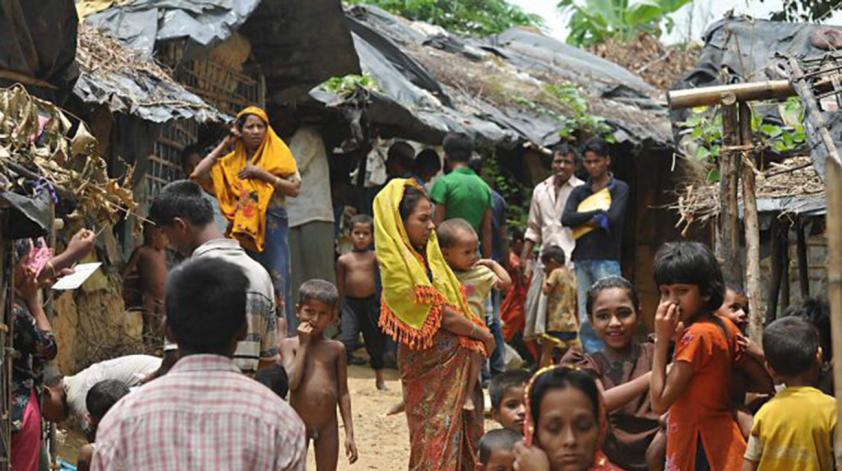









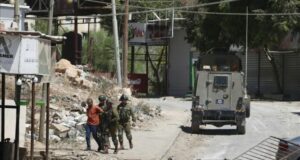
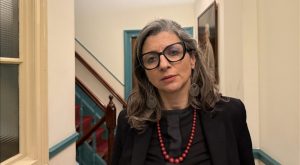


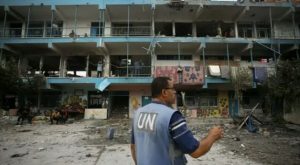
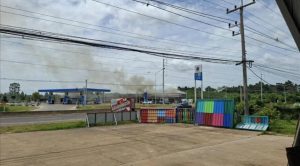















 Mina Indonesia
Mina Indonesia Mina Arabic
Mina Arabic